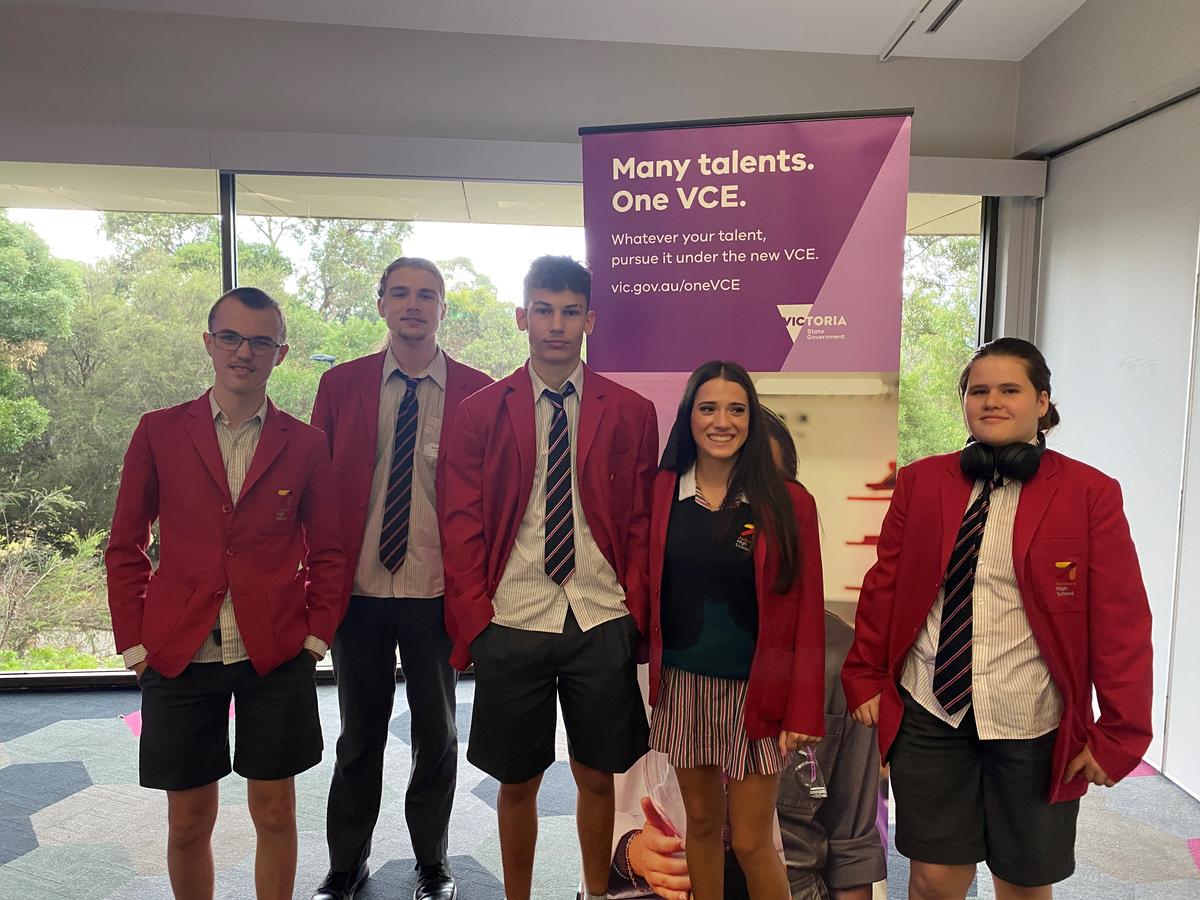From the Senior School Assistant Principal
Ella Price
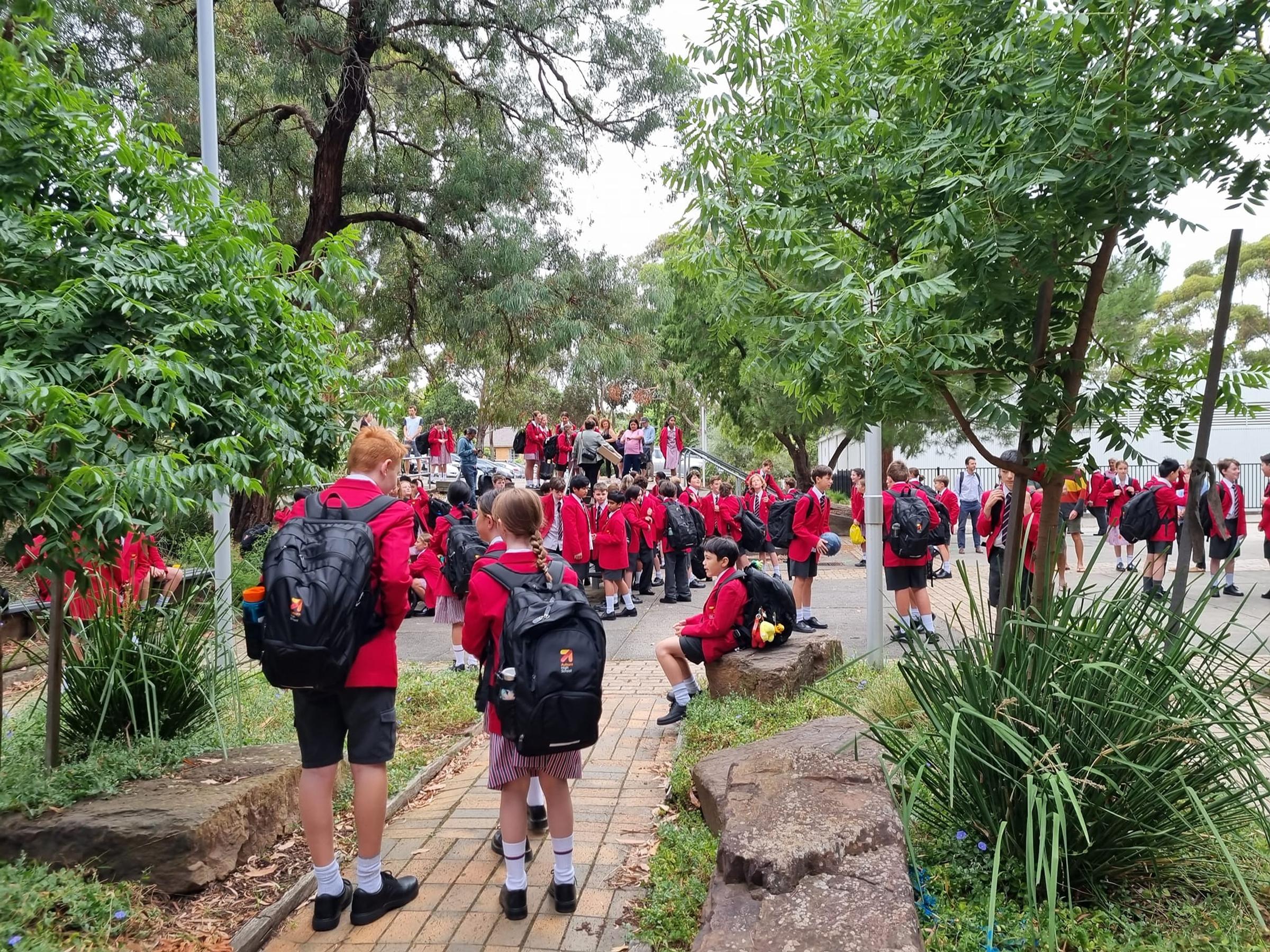
From the Senior School Assistant Principal
Ella Price
Relay for Life
On Saturday I spent the day with students, parents and staff members who volunteered their time for the annual Hawthorn Relay for Life event. It was incredible to see our community’s commitment to the day, persevering through another hot Melbourne day. While we stayed hydrated and sun smart, we continued relaying, demonstrating that cancer never stops. A few of our students impressively walked over 150 laps of the track and while I am sure there were many tired bodies on Sunday, we should all be incredibly proud of our efforts. For quite a few students this was their first Relay for Life event which prompted reflections as to its purpose and impact on members in our community. Thank you to everyone who has donated or contributed to the bake sale, along with those who visited our teams during the day. Your positive support make every step easier!
Fundraising is still open for a month. If you are able to donate to our community team, we would appreciate your support: https://www.relayforlife.org.au/fundraisers/AHSCommunityTeam
All funds raised go directly to the Cancer Council, funding lifesaving research, prevention, advocacy and support programs for families affected by cancer.
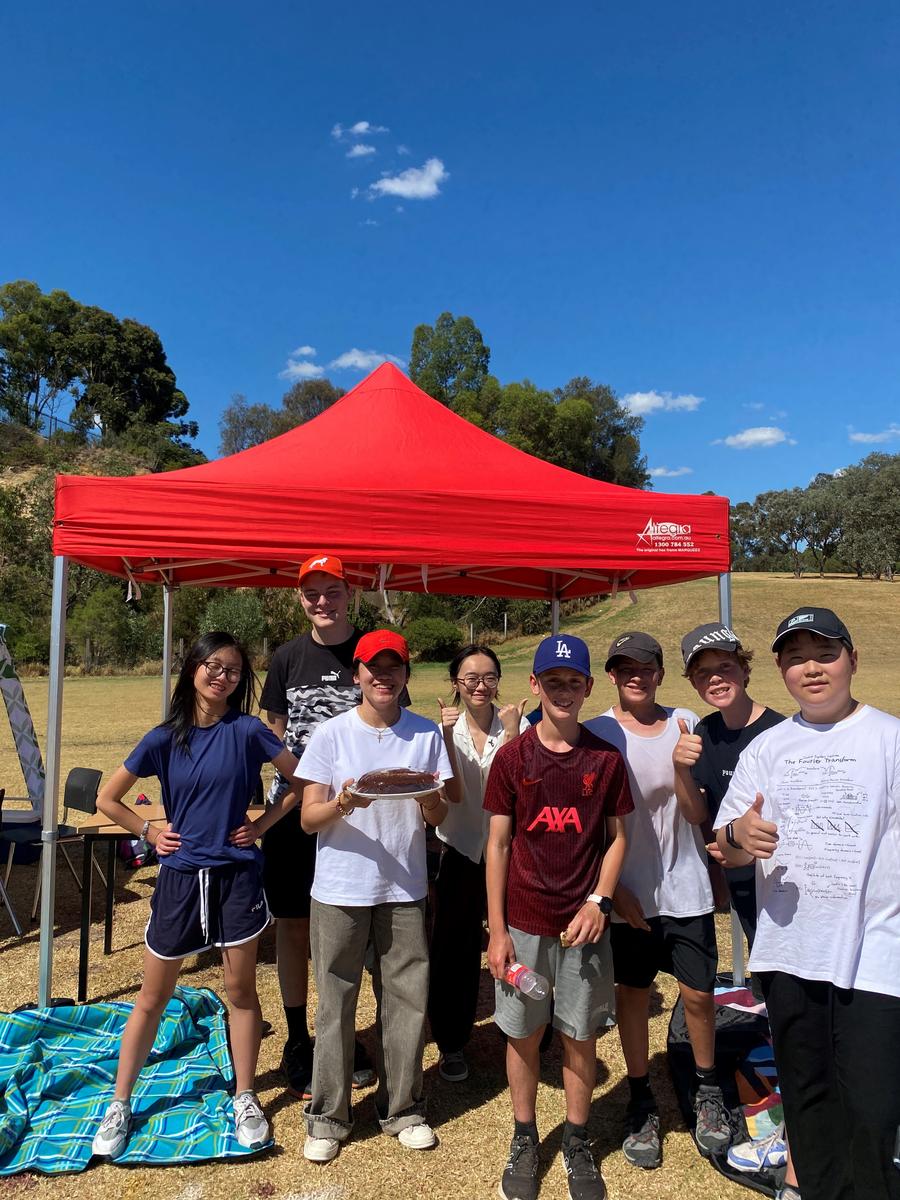

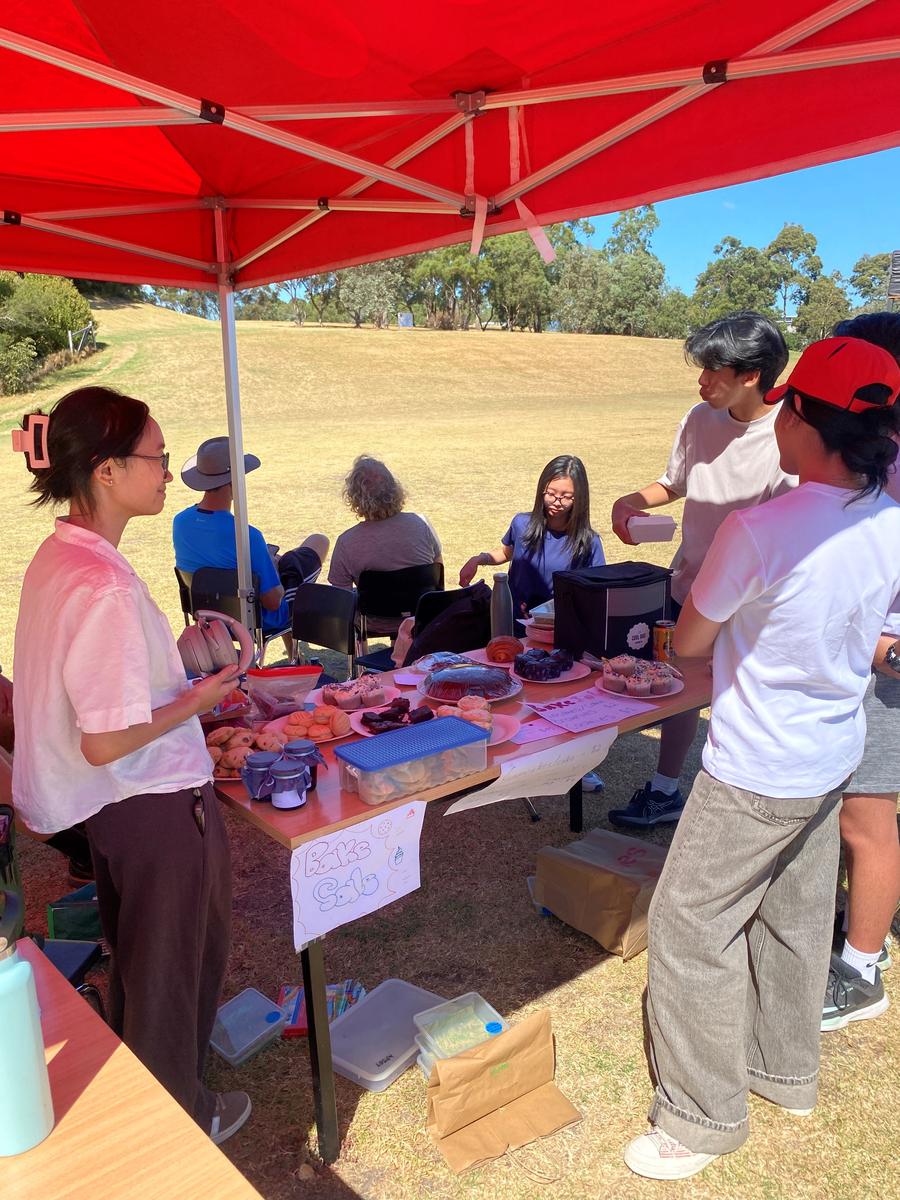

Learning Behaviours
Learning Behaviour reports are published each term to report on student engagement to our students and their families, promoting metacognition, reflection, and student autonomy in learning.
You can now download your child’s Learning Behaviour report for Term 1 on Compass via the ‘Reports’ tab. Teachers have made these judgements based on the Learning Behaviour rubric, included on the second page of the report.
We encourage students to reflect on their report prior to this week’s Parent-Student-Teacher Conferences, supporting them to identify areas of strength and growth.
In the Senior School learning behaviour data is used to determine students’ suitability for promotion to the VCE/IB/VM (for current Year 10s) or acceleration into the VCE (for current Year 9s). Where a student has low, or inconsistent Learning Behaviours strategies should be put in place to support the student to improve their Learning Behaviour throughout the year.
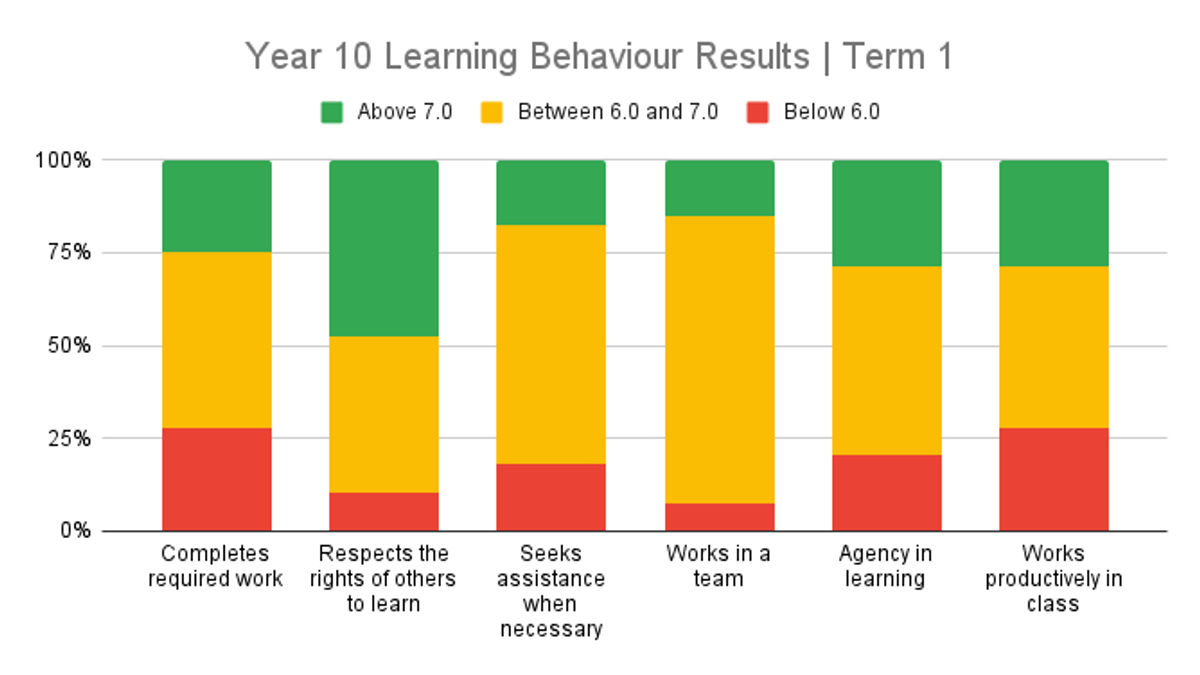

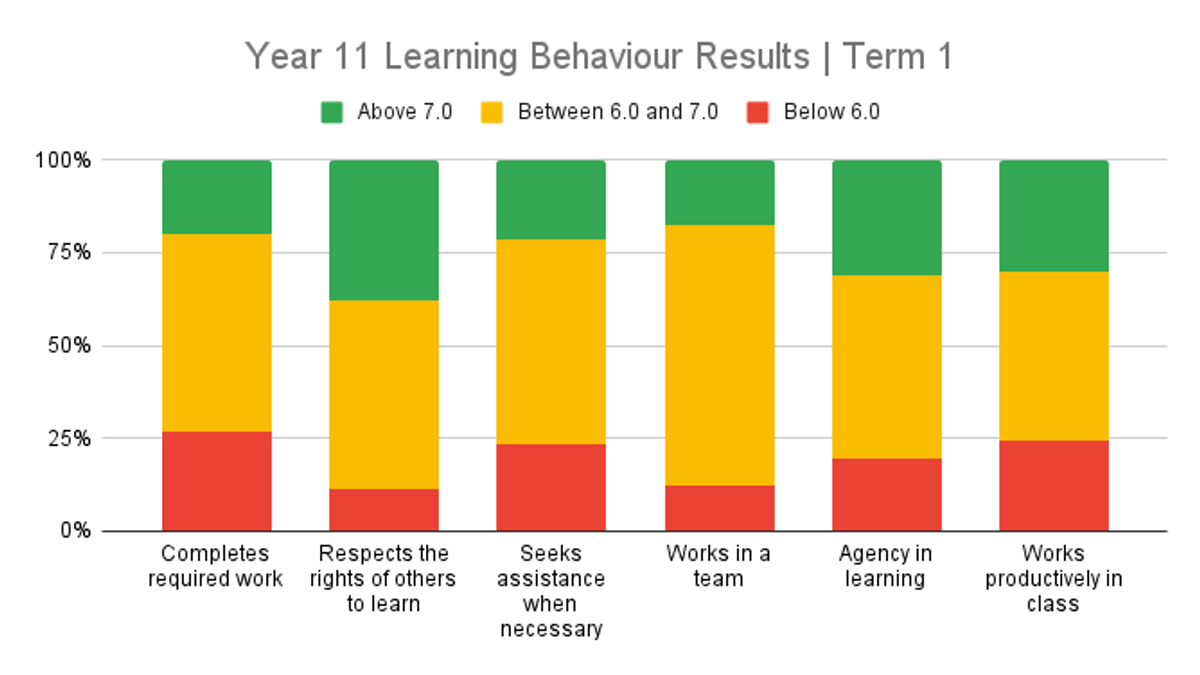

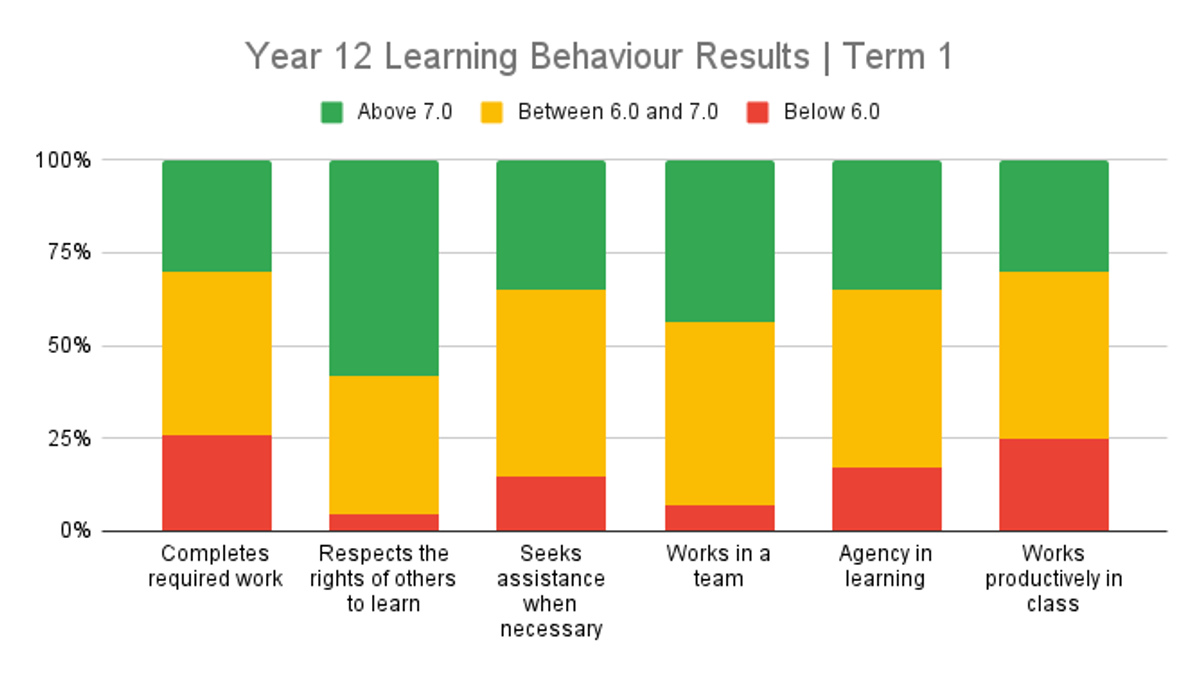

As a Senior School, the learning behaviour we want to collective work towards is ‘Works productively in class’. If we start here, we believe students will also then see an increase in their completion of work.
| Rubric criteria we may be struggling with: | Goals we can set to strengthen these: |
I am often off-task or not focused on class work. I have my laptop open when it is not needed for the activity. I often ask to leave during class time (e.g., to go to the bathroom or my locker). I pack up before being directed to by the teacher. | I will go to the bathroom at recess/lunch so I can maximise productivity in class. I will sit with peers that support me to use class time productively. If I have not finished my class work, I will let the teacher know. If I need help to complete it, I will ask questions before the class is over. I will start my work in class without the teacher having to prompt me. I will make sure my workbook is organised, with a title and subheadings for each lesson. I will use coloured pens and highlighters for key points to help prompt me. If I finished all application tasks I will ask the teacher for extension work, rather than getting distracted with peers or on my laptop. |
Students will have protected time early in Term 2 to review their Term 1 data (attendance, learning behaviours and academic results) and enter this into their My Learning Growth documents. We look forward to supporting our students to reflect on their individual data, enabling them to set individualised goals to support their growth across the year.
Parent-Student-Teacher Conferences
Last week we began our Parent-Student-Teacher conferences. This is the first opportunity for our families to meet with teachers via WebEx to reflect on their child’s Term 1 progress. Thank you to those of you who attended over 3,000 conferences with our teachers in this Term 1 cycle. This represents over 65% of our families who have protected time to meet with us. Our staff reflect positively on these conferences as a way to review the impact of their teaching and learning programs for each of our students. We value the opportunity to strengthen our partnerships with our families to support student growth. Your commitment and feedback helps to shape this our supports for all students in addition to progress data on Compass (Learning Behaviour, attendance and CAT/SAC feedback). If you have any follow up questions from your conferences, we encourage you to directly contact your child’s teacher. Additionally, if there is contextual information (e.g., family dynamics, medical diagnosis, mental health concerns) for your child that would beneficial for all of their teachers please contact your child’s Year Level Leaders.
Our Senior School community
Our Pivot Student Feedback surveys on Teaching and Learning have closed and students will soon begin to discuss their classroom data with their teachers. Through these collaborative conversations, students can see the areas of strength and areas for growth in their classes. Students presented to staff on Tuesday afternoon’s professional learning session. We highly value student involved in these sessions as they can provide thoughtful and tangible ideas that can support students to respond to the data in their classrooms. A discussion about what we can keep doing, start doing and perhaps stop doing across the next term increases transparency and trust between our student-teacher relationships.
Thank you to all the students who completed their Pivot surveys, Madame Delhostal for leading this student voice program and all our teachers who are in the processing of reviewing their Term 1 data.
Year 10 | Year 11 | Year 12 | |
| This teacher respects me for who I am | 5.05 | 5.23 | 5.34 |
| This teacher knows a lot about the topics in this class | 5.05 | 5.28 | 5.38 |
| This teacher supports me if I am confused |
|
| 5.29 |
| I know how I am supposed to behave in class | 5.1 | 5.24 |
|
Year 10 and Year 11 students are indicating more choices in their classes along with more opportunities to work with each other.
Year 10 | Year 11 | Year 12 | |
| This teacher gives me choices about the work I do | 4.7 | 4.91 |
|
| In this class, I often work with other students | 4.7 | 4.94 |
|
| This teacher makes learning interesting |
| 4.91 | 5.09 |
| This teacher helps me to set goals for my learning | 4.74 |
| 5.05 |
| I know how well I am doing in this class |
|
| 5.05 |
Careers education in the Senior School
Careers education supports our students to make informed choices throughout their school.
By the end of Term 1 all Year 10 & 11 students will have had protected time in Education for Life (E4L) or their Study Period to work on their Career Action Plan. This will be sent home to families later in this year and contains four sections: About Me; My Subjects; My Strengths; and My Future.
Students work on their Career Action Plans throughout the year, supporting them to refine their plans for the future as they explore career ideas, identify study and training options and think about actions to achieve their goals.
On Tuesday I had the pleasure of taking our Vocational Major students to a School Industry roundtable discussion on Work Experience. Auburn students were joined with Executive Directors from DET, Job Skills and Pathways Managers, Career Practitioners, school staff and other students to develop ideas to respond to future labour market and job skill trends. 100% of students in Metro East reason have access to Work Experience. This varies in format and the year level that the program is delivered. At Auburn High School, students in Year 10 complete a one-week placement block at the end of the year. Information has been disseminated to students in E4L, encouraging them to review their student interests and Morrisby results (from Year 9) to decide on an industry they would like to experience.
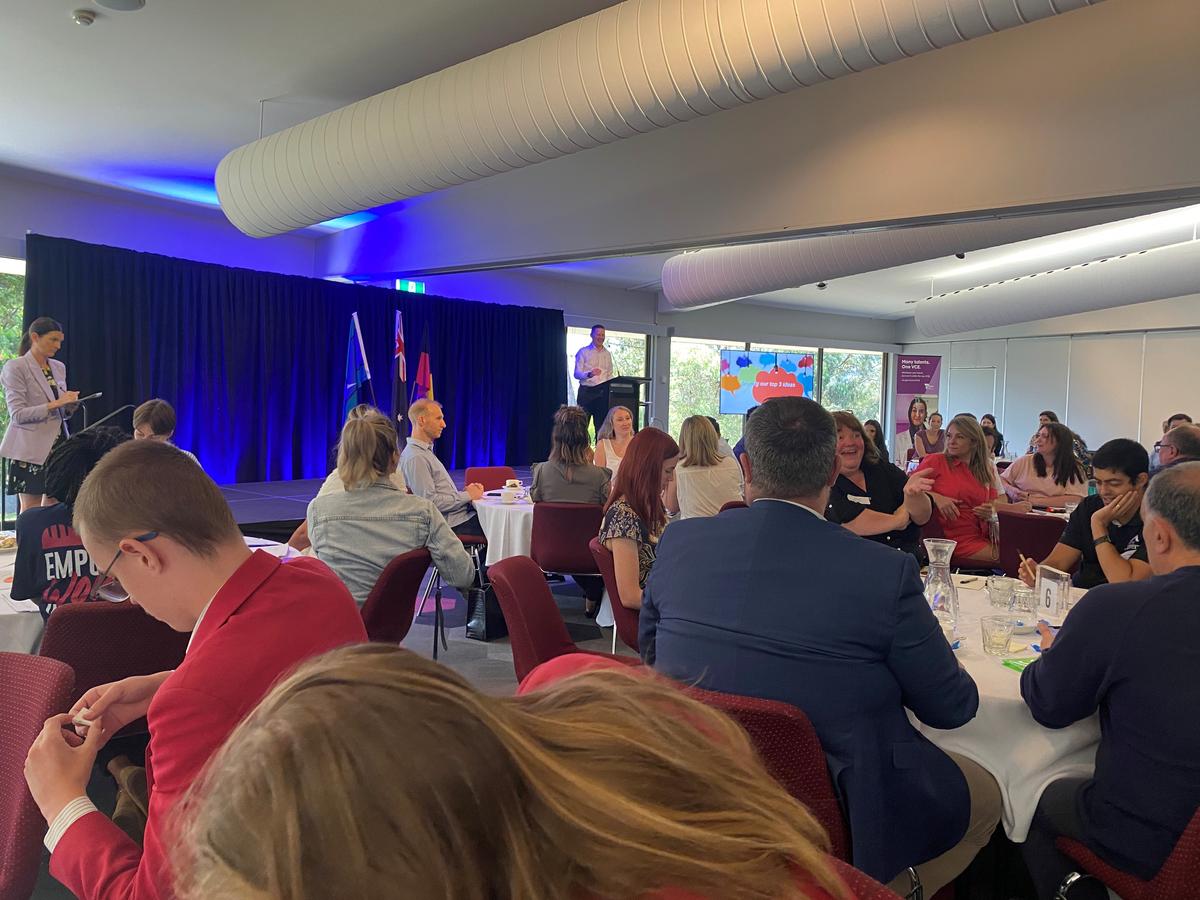

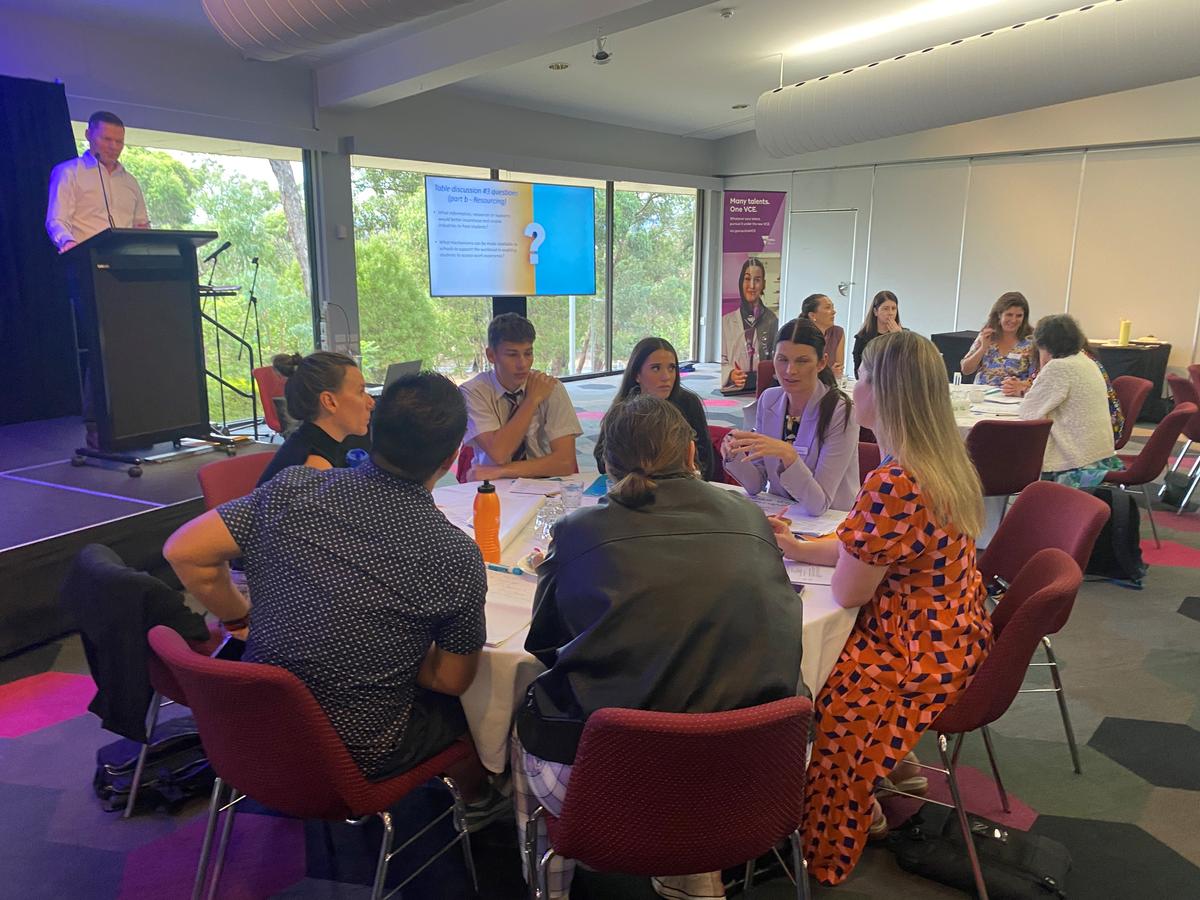

Tuesday’s roundtable discussion acknowledged barriers such as, the availability of employees aligned to student interest, transportation to placements and availability of employees to supervise students on work experience. The Department of Education is looking at solutions to build and promote a local supply of placements. Solutions such as digitalising the process, creating a database where students can see employers who are open to work experience placements and a review of the timing of programs to best suit both schools and industry partners are some of the ideas generated. We are excited to see how work experience can evolve between now and 2027 as local partnerships are developed within our communities, enable students further options to explore their careers.
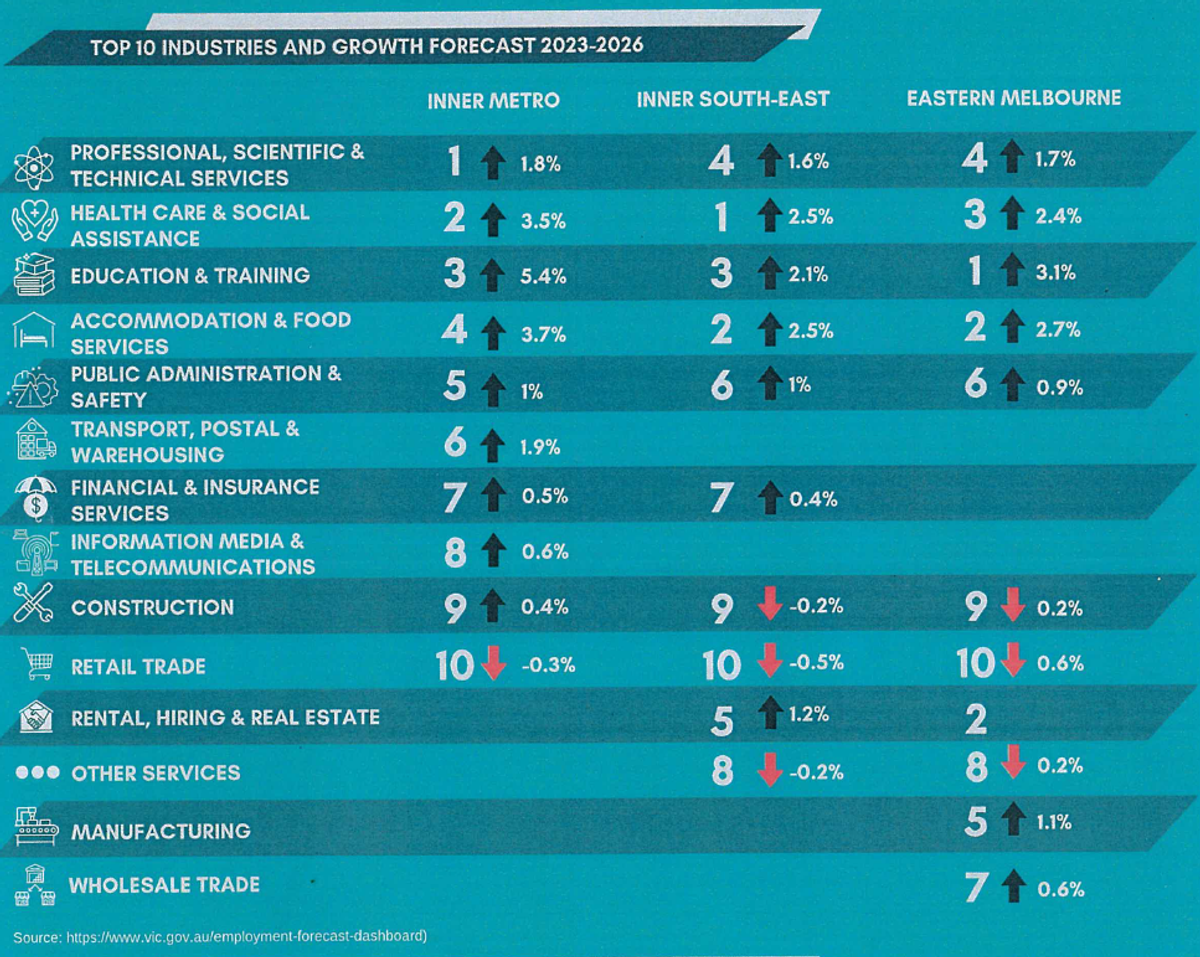

Year 11 & 12 students at the Careers Expo at the Melbourne Convention and Exhibition Centre on Thursday 2nd of May
At the Careers Expo students can speak directly with student advisors and ambassadors from universities (Victoria and interstate), TAFEs and RTOs, explore careers in the ADF, Police and Ambulance services, chat with key industry representatives, learn more about apprenticeships, traineeships, and cadetships, explore employment and gap year options and gain study advice through subject specific seminars. We are also in the process of confirming a university visit where Year 11 and 12 students will have the opportunity to learn about study options and pathways, campus life, student experiences, and get a small taste of university life for themselves. We remind all families to pay and provide consent on Compass as soon as possible for this incredible opportunity.
